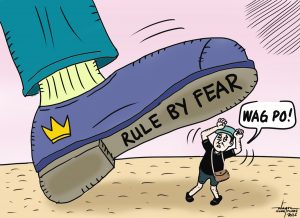Last week, with so many activities going on in the city, there was not much coverage on the presentation of researches that would shed more understanding on how to prepare those persons deprived with liberty (PDL) to return to their community. Private institutions have helped government through various forms of intervention such as education and livelihood programs that will hopefully curb recidivism for those who are set free.
The 2nd International Conference on Inmates’ Transformative Education for Successful Re-entry, was organized by the Social Entrepreneurship, Technology and Business Institute (SETBI) and the University of Southeastern Philippines, and the Philippine Bureau of Jail Management and Penology.
Its concept paper explains that there will come a time for inmates to be released from jails and return to their community. The question raised was: “Do we want these inmates to succeed when they return to our communities? While the response would be that they should reintegrate and become law-abiding citizens, the hitch is that successful reentry is very difficult for so many reasons, the first is recidivism due to unemployment.
Government and private institutions have prepared interventions for our inmates. The College Behind Bars situated at the BJMP is now on its third year of operation. They have two college courses and Grades 11 and 12. To supplement this formal education, practical livelihood skills such as crafts and technical vocational courses are provided by other private groups, as well.
The women inmates stand out especially for their soft twine bags that have reached international markets.
Thus, the memorandum of agreement between the city government and the BJMP to provide space at the Pasalubong Center so inmates can sell their products is noteworthy. Having a steady outlet for their crafts is a huge contribution to their livelihood even if they are still inside the jail. This also makes them confident that they can secure a livelihood once they are set free.

